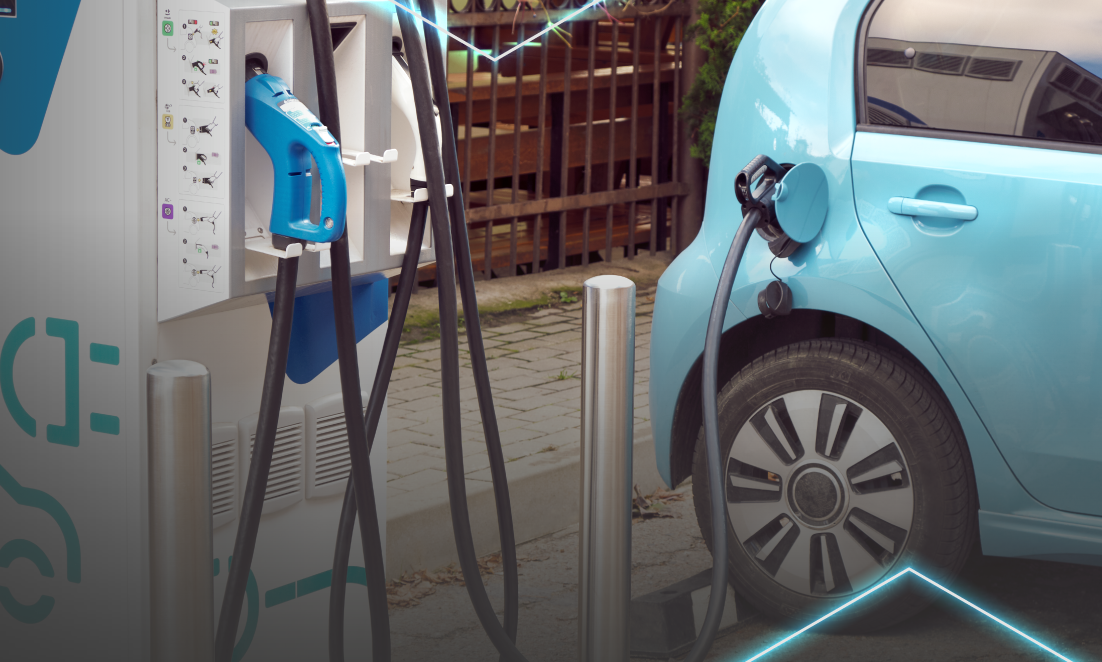From the first automobiles of the late 19th century to the rise of hybrid and electric cars, the automotive industry is used to evolving and adapting.
In 2023, there will be several new automotive trends for the sector, from an expected boom in electric vehicle sales to the continuing advancement of connected and driverless cars.
As the industry faces these latest changes, there will be new opportunities for professionals in the sector to seek exciting new roles.
Here are four trends you need to know about for the automotive industry in 2023.
Electric Vehicle Sales Will Stay Strong
During a volatile few years for the automotive industry, sales of electric vehicles have stood out as a positive.
People have an increasing awareness of their impact on the planet and many, including drivers, are taking steps to reduce their carbon footprint.
About one in five new cars bought in the UK in 2022 were fully electric, according The Society of Motor Manufacturers and Traders. In the first six months of the year, 56% more pure battery electric vehicles (BEV) were registered.
The UK Government has recognised the environmental benefit of electric vehicles and set a target to phase out the sale of new petrol and diesel cars by the end of the decade.
This trend for cleaner vehicles is expected to continue in 2023. Established major automotive manufacturers – from Hyundai to Mercedes-Benz – are preparing to launch new electric vehicle models this year. Ford, another industry giant, will offer seven new all-electric passenger vehicles and vans by 2024.
New electric automakers are also set to make a splash this year including Fisker and VinFast. As more electric vehicles enter the market, the price for consumers is likely to fall.
Two possible risks of electric car ownership in the UK are the rising cost of electricity and that electric car owners will have to pay vehicle excise duty, or road tax, from April 2025.
Experts are divided on what impact the road tax will have on electrical vehicle sales. Some believe it is unlikely to be a major factor given the environmental benefits and the remaining incentives for EV drivers, including not paying fuel duty.
With cities across the world planning to ban Combustion Engine Vehicles by 2030, this year will bring more automotive engineering job opportunities, in areas like R&D, electrification and battery management systems.
Advancements for Autonomous Vehicles
Elon Musk’s prediction in 2020 that his company Tesla would have “1 million robotaxis on the road by the end of the year” didn’t come true, but manufacturers continue to invest heavily in autonomous vehicles.
A 2021 report from McKinsey & Company found $206 billion had been invested in autonomous-vehicle technology and smart mobility. Google has a driverless car division and the likes of Tesla, Ford and General Motors are among the companies pushing for a steering-wheel-free future.
Self-driving cars are considered safer as they are capable of sensing their environment and moving safely within it, removing factors like human error and driver fatigue. They are also more fuel efficient.
One reason there aren’t more autonomous vehicles already on the road is the technological and safety challenges that need to be overcome. Driverless cars have at times struggled with unexpected incidents on the road and in poor weather conditions.
There have been some success stories though. Self-driving taxis are available in parts of China and in several US cities and more driverless journeys will take place as technology is enhanced and refined.
With the opportunity to fundamentally disrupt private transport and shape the future of the automotive industry, companies will continue to invest in autonomous vehicles in 2023.
Automotive Professionals Will Have Their Pick of Roles
The automotive industry has a big skills shortage. A survey from the Society for Motor Manufacturers and Traders (SMMT) found nearly half (49%) of UK automotive companies are concerned about skills shortages in key roles from R&D to engineering and manufacturing.
At the same time, new jobs are being created. SMMT found 14,000 new roles have been delivered or created by UK investment in zero-emission vehicles and battery production since 2011.
As companies work to deliver the vehicles of the future, top talent will be in bigger demand than ever. Candidates looking for their next role in the automotive industry in 2023 will have an array of options.
Continued Investment in Connected Cars
Vehicle manufacturers are investing increasing amounts in software and digital technology to deliver a seamless connected car experience for drivers.
In linking to other services, the aim is for the modern vehicle to provide a more insightful, entertaining and personalised solution. From streaming music to accessing live maps, many modern vehicles are already “connected” to some degree.
As auto manufacturers battle to produce the best driving experience, more investment in R&D in this area is anticipated in 2023.
With increased investment, there will be a growing demand for professionals and executives in roles focused on infotainment and the connected car.
E-Mobility Jobs and Industry Insight
From electric car sales and advancements in autonomous vehicles to investment in connected cars, there are some exciting trends for the automotive industry in 2023.
At Fields & Rudd, we specialise in automotive engineering recruitment and executive search across the UK and Europe and work with some of the world’s largest technological organisations to recruit for automotive engineering jobs.
As the sector evolves, we know the roles that are (and will be) available and the skills needed to fill them. For industry insight or support to find your next role, get in touch with our specialist team.

